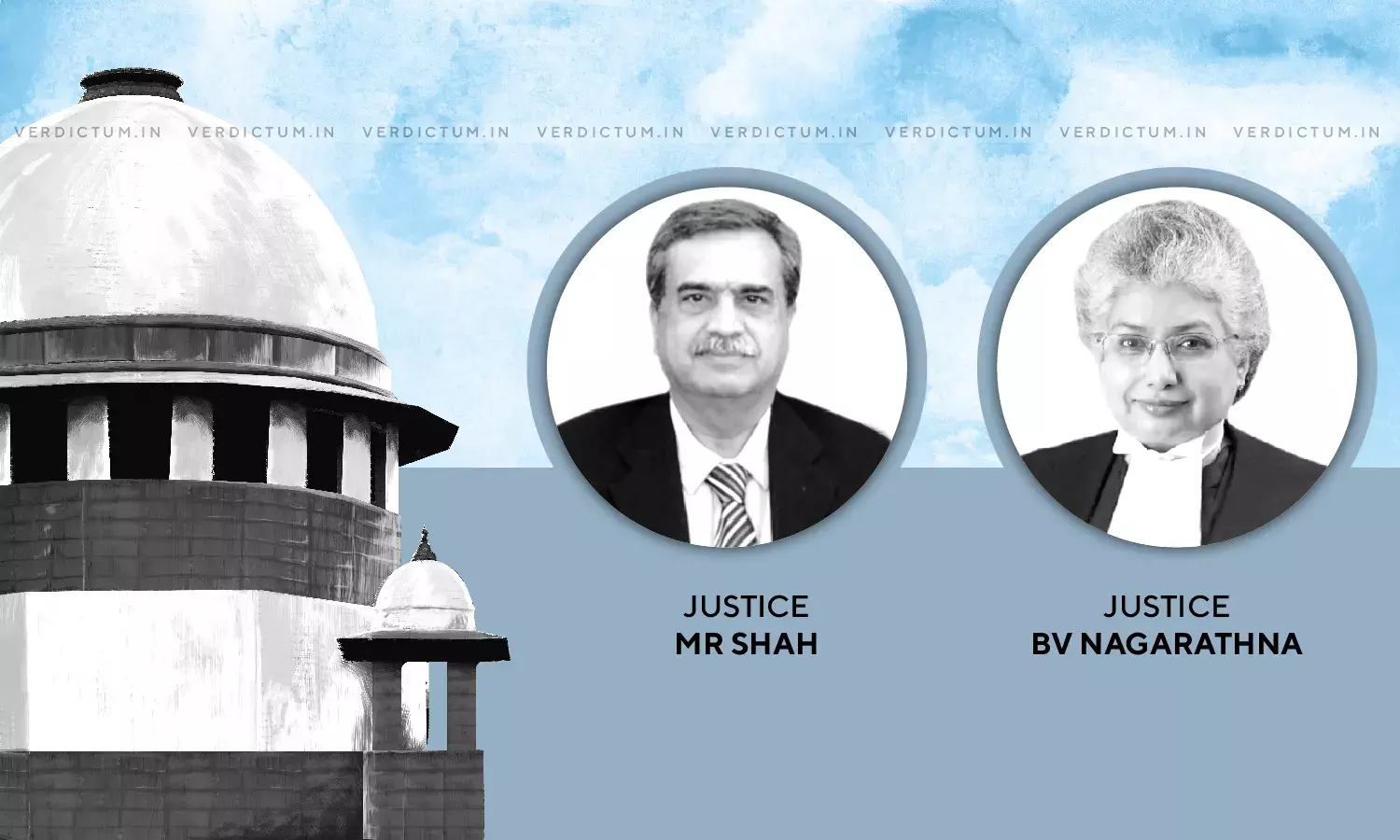Interference Of Judiciary In Policy Decisions Having Financial Implications Is Unwarranted: SC Sets Aside Direction To Autonomous Body To Grant Pension

A two-judge Bench of the Supreme Court comprising of Justice M.R. Shah and Justice B.V. Nagarathna has held that the employees of autonomous bodies and institutions like the Water and Land Management Institute could not be granted similar benefits as employees of the State Government. Additionally, the Court held that the interference in policy decisions having cascading financial implications by the High Court of Bombay was both unwarranted and unjustified.
In the present case, the State of Maharashtra had denied any entitlements such as pensionary benefits to the employees of the Water and Land Management Institute. The employees of the Water and Land Management Institute had challenged this position before the Aurangabad Bench of Bombay High Court. The High Court had quashed and set-aside the communication of the State Government and ordered for grant of pensionary benefits to the Petitioners.
The High Court had observed that there was no reasonable justification for dissimilar treatment between the employees of Water and Land Management Institute and the State Government employees. In light of Article 14 of the Constitution of India, the High Court had held the denial of benefits to be discriminatory. The Appellants i.e. the State of Maharashtra being dissatisfied and aggrieved with the impugned order of the High Court, have preferred the appeals to the Supreme Court.
The learned Solicitor General, Mr. Tushar Mehta assisted by Mr. Sachin Patil appeared for the Appellants i.e. the State of Maharashtra while Mr. J.N. Singh appeared for the Respondents before the Apex Court.
The primary question for consideration was as follows –
- (i)Whether the employees of the Water and Land Management Institute, which is an independent autonomous entity registered under the Societies Registration Act, are entitled to the pensionary benefits on par with the State Government employees?
It was contended by the Appellants that the Water and Land Management Institute is an independent autonomous body registered under the Societies Registration Act, 1860 and is an entity governed by its own rules and regulations. Under the Service Rules adopted by the Water and Land Management Institute, there was no provision for pensionary benefits. Moreover, it was stated that the denial of pensionary benefits was a policy decision which was consciously taken after due deliberation by the State Government and the High Court ought not to have interfered with such a position in exercise of its powers under Article 226 of the Constitution of India. According to the appellants, the High Court had failed to appreciate the recurring effect of financial implications on the State Government.
On the other hand, it was stated by the Respondents that the employees of the Water and Land Management Institute could not be extended a differential treatment in the payment of pensionary benefits since the employees of the Water and Land Management Institute and the State Government employees were similar in several aspects. It was also contended that the State Government had sufficient funds to meet the financial burden of the pensionary benefits and thus, the denial of pension was discriminatory and violative of Article 14 and the principle of equality.
The Supreme Court referred to the case of T.M. Sampath v. The Ministry of Water Resources to state that the employees of independent autonomous institutions cannot as a matter of right claim the same service benefits as Government Employees. These entities are governed by their own service rules and conditions and hence, cannot be put on par with the State Government employees.
Moreover, the Court following its judgment in Punjab State Co-operative Milk Producers Federation Limited v. Balbir Kumar Walia observed herein that – "As per the settled proposition of law, the Court should refrain from interfering with the policy decision, which might have a cascading effect and having financial implications. Whether to grant certain benefits to the employees or not should be left to the expert body and undertakings and the Court cannot interfere lightly. Granting of certain benefits may result in a cascading effect having adverse financial consequences."
Thus, the impugned order and judgment passed by the High Court of Bombay was held to be unsustainable and was quashed and set aside. It was held that the employees of the Water and Land Management Institute were not entitled to pensionary benefits and the appeals were accordingly allowed by the Court.
Click here to read/download the Judgment

